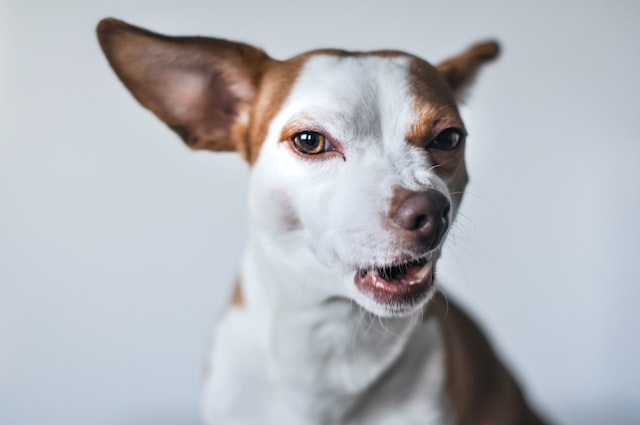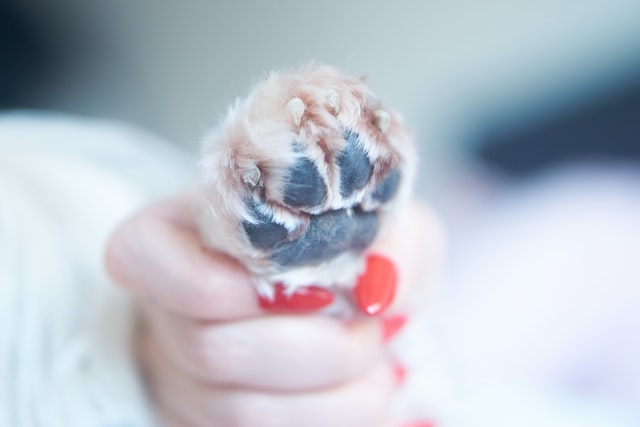Have you ever wondered how many Chihuahua Puppies are in a litter? Chihuahuas are increasingly popular recently with their cute faces, miniaturized size, and spunky personalities. For prospective owners, it is crucial to understand this breed’s traits and know what to expect regarding litter size. Keep reading to find out the average number of Chihuahua puppies in a litter!
The Average Litter Size of Chihuahua Puppies
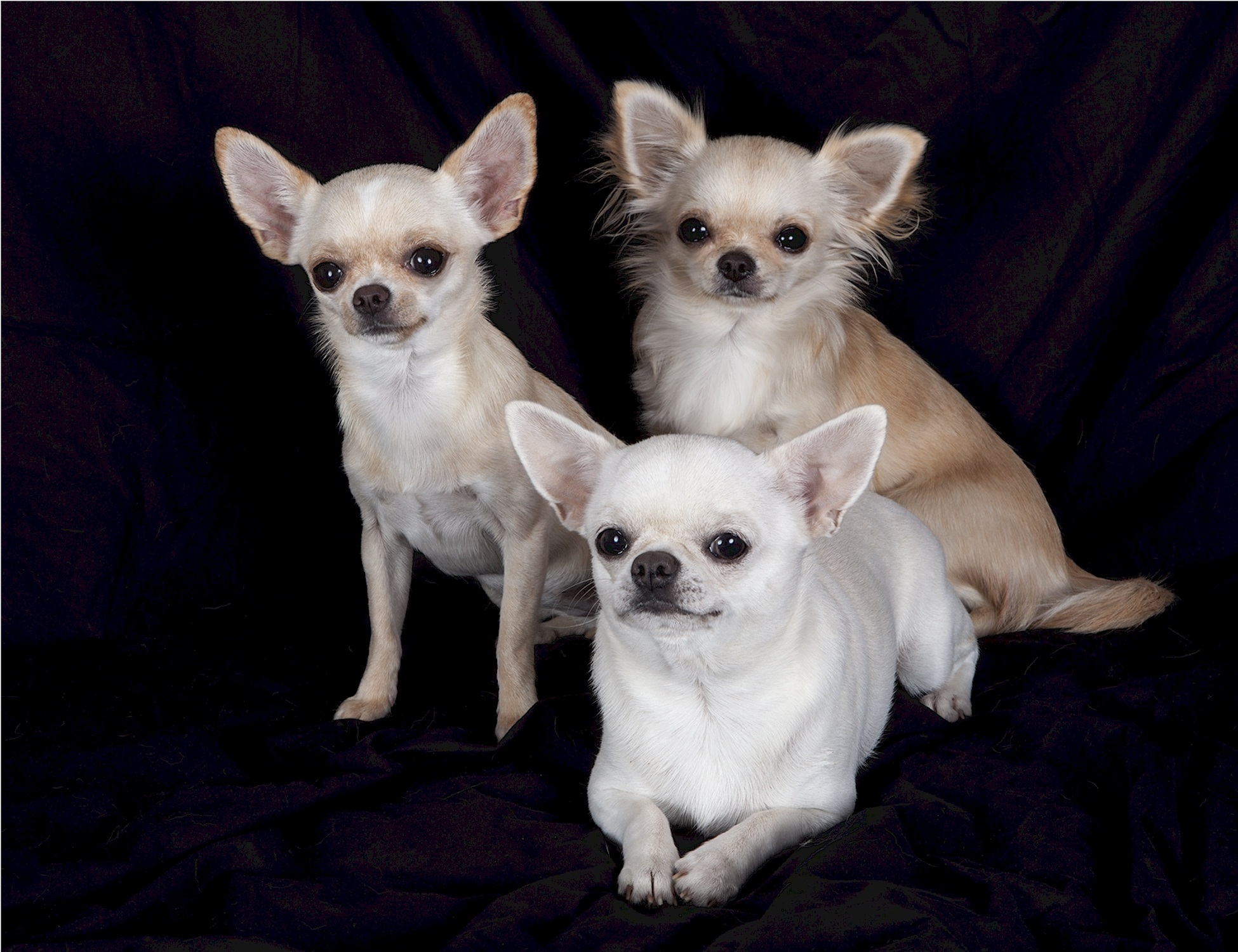
Chihuahuas are known for their curious and mischievous personalities. While they may be small, they make up for it in numbers; the average Chihuahua litter can range from three to six puppies. The number of puppies born in each litter can vary drastically depending on factors such as the age and health of the mother-to-be and her previous housing situation. If she is relatively young and healthy, she has a greater chance of producing a large litter than an aged and unhealthy female.
Compared to other breeds, Chihuahua puppies tend to be born in a smaller litter. Chihuahuas can also have a lower success rate when delivering puppies, as they are more prone to problems during the birthing process. Chihuahua puppies produced naturally are often relatively small and weak, so owners and breeders must take special care to ensure that all born Chihuahua puppies in a litter reach their full potential.
Factors Influencing Chihuahua Litter Size
Many factors can affect how many puppies your beloved Chihuahua will have. An insight into these aspects is key to understanding the process and helping your pup produce healthy litters.
🐶Age
One factor that affects litter size is a female chihuahua’s age when she has her first heat cycle. Generally speaking, a female will produce more offspring if her first heat cycle occurs before 6 months of her age. Additionally, if your female waits too long to have her first heat cycle (over 1-year-old), it can result in smaller litters or even no puppies at all!
🐶Size & Weight
Another factor that influences litter size is the size and weight of both parents. Generally, larger dogs tend to have larger litter than smaller ones, while heavier dogs tend to have fewer puppies than lighter ones. Also, the gene pool may become too tiny if you breed only two small chihuahuas together, increasing the likelihood of health problems and malformations in the offspring. Therefore, you should breed large and small chihuahuas together for healthier pups!
🐶Health & Nutrition
Breeders should ensure that female Chihuahuas are healthy before breeding, as any health conditions may cause complications during pregnancy or delivery of the puppies. Additionally, providing good nutrition before mating ensures that your female has enough nutrients to sustain her throughout the gestation and lactation periods which helps increase litter sizes naturally!
🐶Genetics
Some breeds are known to have larger litters than others, so if you know your pup’s ancestry, consider that when trying to predict how many puppies you might get in a single delivery. Furthermore, certain genetic diseases can lead to smaller-than-average litters or even miscarriages, so all breeding should be done responsibly and with the help of an experienced veterinarian.
🐶Environmental Factors
The temperature can hugely impact the female Chihuahua’s reproductive cycle and litter size, as puppies born in colder weather have a lower birth weight than those born during warmer months. Since exposure to high temperatures might reduce the average number of chihuahua puppies in a litter, it is crucial to consider Mother Nature when examining the prospective litter size.
Additionally, stress can also cause Chihuahua litters to be smaller than expected. If your Chihuahua feels anxious or scared, it could lead to complications during labor or even a miscarriage. Therefore, ensure that your Chihuahua feels safe and secure throughout her pregnancy.
Popular Breeds of Chihuahuas That Often Have Bigger Litters Than Average
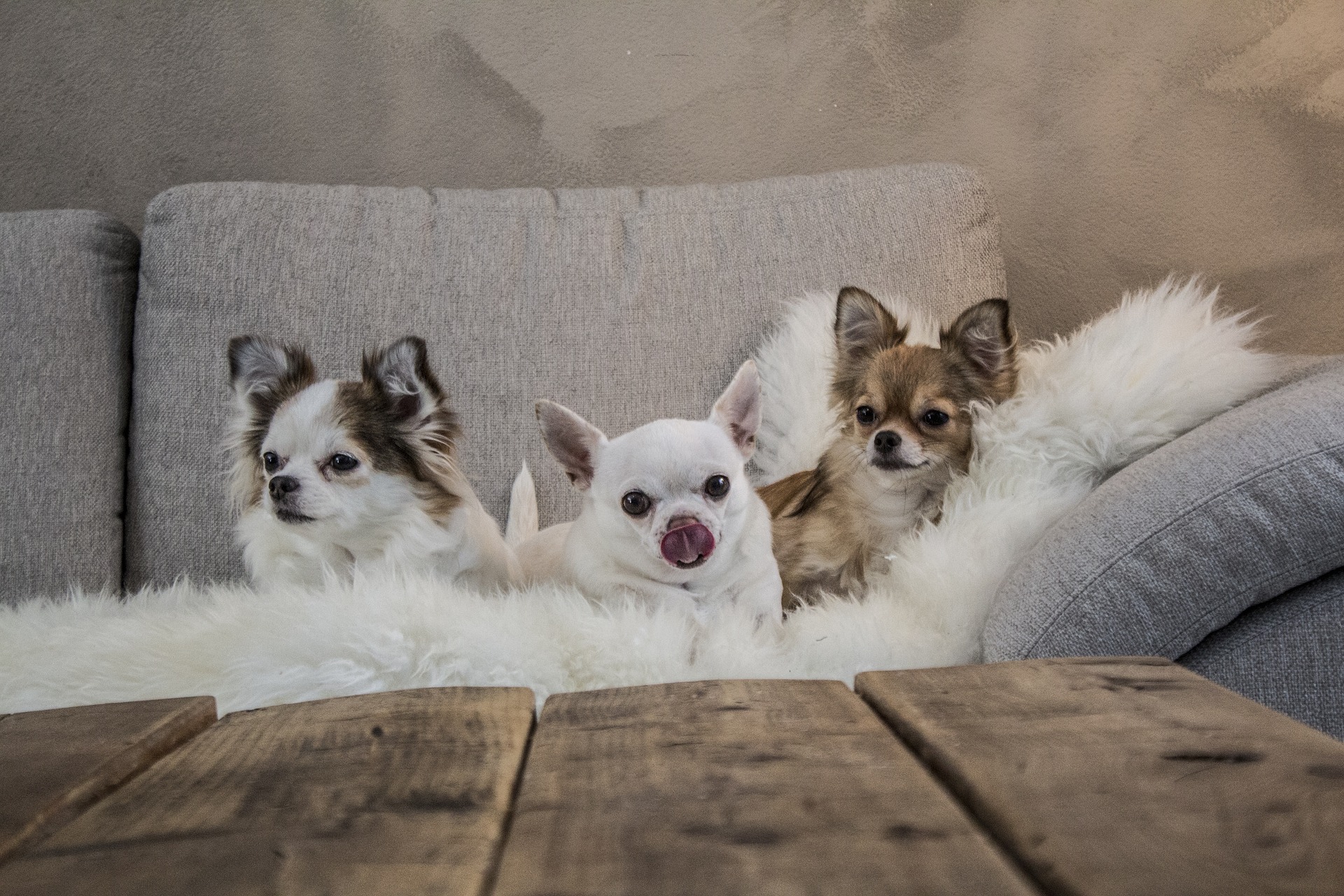
Some Chihuahua breeds are more likely to have larger litters than others due to their genetic makeup and size. Knowing which breeds are most likely to have bigger litter can help you decide which type of Chihuahua is right for you.
🐕The Long Coat Chihuahua
The Long Coat Chihuahua is one of the most popular breeds due to its luxurious coat and sweet personality. These dogs usually have between five and seven puppies in each litter, making them ideal for those who want a big family of furry friends. This breed tends to have larger litter than average because the female’s body is better suited for carrying puppies. The Long Coat breed also has a high fertility rate, meaning the female will likely become pregnant with her first litter after only one breeding cycle.
🐕The Applehead Chihuahua
The Applehead Chihuahua is another popular breed that often produces larger litters than other breeds of Chihuahuas. This breed has a thicker, more muscular body than some different types, making it easier for them to carry more chihuahua puppies in a litter. This breed’s litter size is usually between 5 and 7 puppies.
🐕Toy Fox Terrier
The Toy Fox Terrier is a mix between a Smooth Coat and a Long Coat Chihuahua, making it an ideal choice if you’re looking for a dog that consistently produces a big litter of puppies. If you’re looking for a Chihuahua with a bigger-than-normal litter size, the Toy Fox Terrier is a great option. Litters typically range in size from 4 to 7 puppies. This breed is also known to be relatively healthy and robust, making them great family pets.
🐕Teacup Chihuahuas
Teacup Chihuahuas are smaller than the average breed but still tend to produce a larger litter. They usually have 4 or 5 puppies in each litter and are known for their calm and gentle nature. Teacup Chihuahuas also have a very small frame, meaning they can usually carry and deliver large litter without any medical complications.
How to Encourage a Healthy Size Litter in Chihuahuas
If you’re a proud Chihuahua parent, you know how vital having a fit and robust litter size is. It can be challenging to ensure that your pup’s litter will be healthy, as many factors can influence the outcome. Luckily, there are some best practices to follow regarding encouraging a healthy size of Chihuahua puppies in a litter. Let’s look at what you can do to give your pup the best chance at having an optimal litter size!
✔️Healthy Diet & Exercise for Moms-To-Be
Proper nutrition and exercise can help encourage a healthy litter size in your Chihuahua. Before mating, ensure your female Chihuahua gets all the nutrients she needs by maintaining a balanced diet full of lean proteins, complex carbohydrates, and essential fatty acids. Regular exercise before mating is also helpful in getting the best possible shape for pregnancy.
✔️Providing Proper Nutrition
Nutrition is one of the most critical elements when encouraging a healthy-sized litter in Chihuahuas. Give your pup access to high-quality food with plenty of nutrients so that its body can support pregnancy and lactation periods. Supplement its diet with vitamins and minerals specifically designed for pregnant dogs since this helps pups get all the essential nutrients needed during gestation. Additionally, provide the chihuahua mom with small meals throughout the day rather than one or two large meals since this will help keep her energy levels up while pregnant.
✔️Ensuring Adequate Exercise
Exercise helps keep the Chihuahua body healthy and strong, supporting a larger litter size if necessary. It’s best if you can take your chihuahua mom on walks at least twice a day—in addition to playing fetch or any other game that gets her moving—so that she can get some fresh air and stay active during her pregnancy. Additionally, if possible, try taking your pup out for some playdates with other dogs for socialization purposes so that she doesn’t become too stressed out leading up to delivery time.
✔️Mental Stimulation
Mental stimulation helps keep your pup relaxed and happy, leading to healthier pregnancies and litter overall. One way you can give your dog mental stimulation is by introducing new toys every once in a while so that it can stay energized and interested in playing. Additionally, puzzles or treat dispensers are great options since they require more than just looking at an object; they need problem-solving skills which can help keep your pup engaged throughout the day!
✔️Avoid Unnecessary Stress
It’s common knowledge that stress affects us physically and emotionally – this applies to dogs too! Excessive stress or anxiety before birthing can cause disruption or even death in puppies due to hormonal disturbances or poor nutrition while they are in utero. To avoid potential health issues, limit exposure to unfamiliar people and animals before mating and throughout pregnancy. Additionally, ensure your pup has plenty of rest during pregnancy to stay relaxed and comfortable.
✔️Find an Experienced Breeder
If possible, it’s always best practice to find an experienced breeder who specializes in breeding Chihuahuas. An experienced breeder will have years of experience helping litters come into the world safely and healthily. They’ll also be able to offer advice on how best to care for your pup before conception and throughout her pregnancy. Do your research beforehand to know exactly what kind of breeding program they run before making decisions about trusting them with your pup’s well-being!
Preparation for Chihuahua Puppy Litter
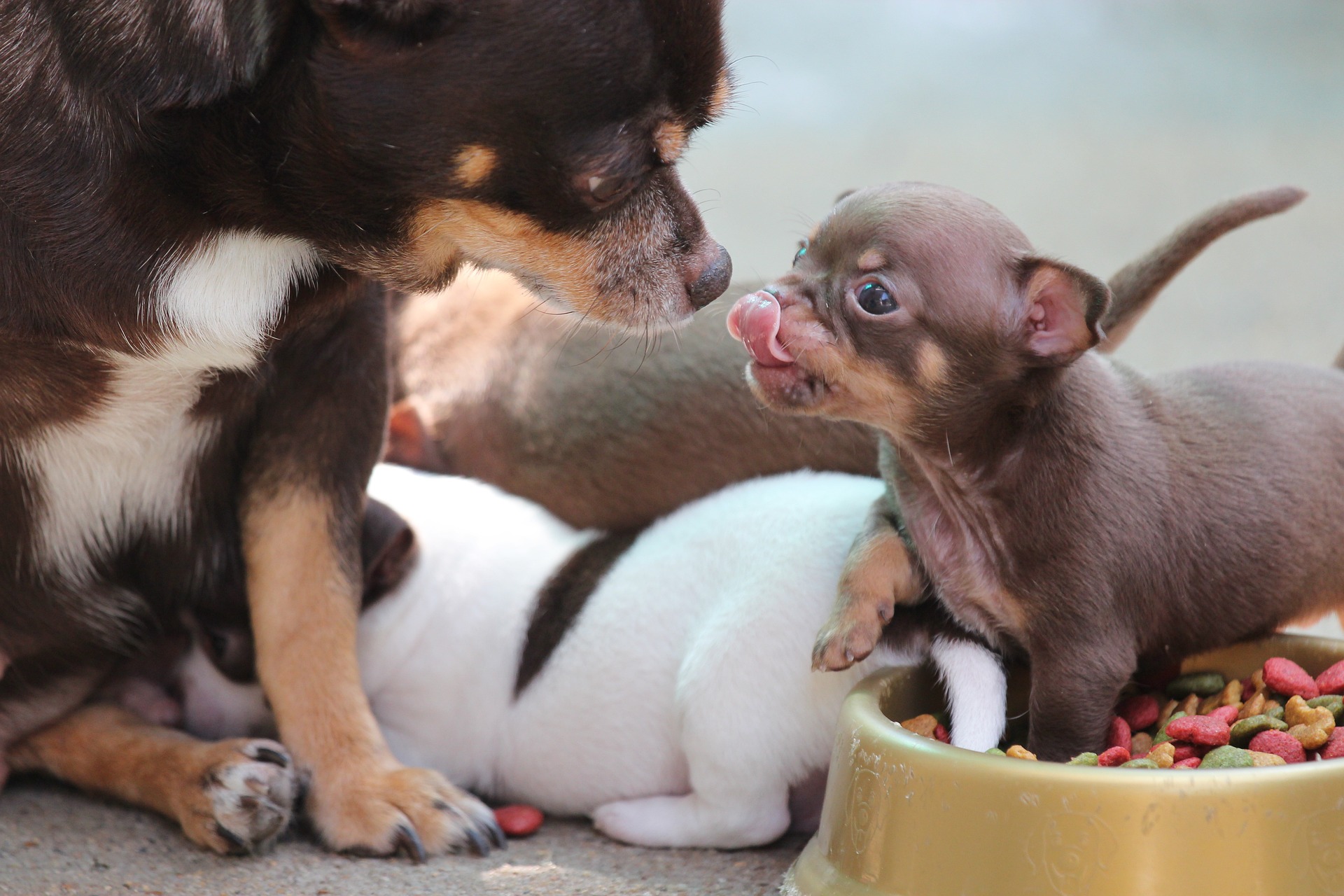
Chihuahuas typically give birth anywhere from 49-65 days after mating and usually deliver between 3-6 puppies per litter. Chihuahua puppies tend to be very fragile and require special care during the first few weeks of life. Prepare your Chihuahua before she gives birth by providing her with a safe and comfortable birthing area that is warm, quiet, and well-ventilated.
▶Necessary Supplies
Having the necessary supplies on hand is critical when it comes to caring for your Chihuahua and her litter. Before delivery, ensure you have plenty of towels, heating pads, thermometers, scissors, and other essential items to provide the best care for your Chihuahua. Additionally, prepare enough puppy formula and bottles just in case the mother Chihuahua cannot nurse her puppies.
▶The Whelping Box
A whelping box is essential for providing your new puppies with a safe space after birth. The whelping box should be large enough that your Chihuahua can comfortably move around in it but small enough that she can easily keep track of all her pups. It should also have low sides so puppies can easily climb in and out when necessary. Line the bottom with blankets or towels — these will help keep your puppies warm and comfortable during their first few weeks of life!
▶Veterinary Care
Provide adequate veterinary care for your Chihuahua before she gives birth and her entire litter afterward. Schedule regular check-ups with your vet leading up to delivery so they can monitor her health. After delivery, bring all puppies to the vet for exams within their first week to immediately rule out potential health issues. You should also vaccinate them against common canine diseases such as parvovirus or distemper — this will help ensure they stay healthy throughout their lives! Additionally, deworm them from birth until at least 8 weeks old (or longer if your vet recommends).
Difficulties That May Arise from Smaller Litters of Puppies
Smaller litters often have higher rates of health issues than larger litters. This is because they may not get the same nutrition as puppies in a bigger litter, leading to weak immune systems and other problems. Additionally, smaller puppies might not be able to compete for food as well as their larger siblings, leading to malnutrition or injury from competing for it too hard.
Moreover, puppies in a small litter are more susceptible to stress due to their lack of companionship and support from siblings. As such, owners must provide extra attention and love, so the pups feel secure in their environment. Watch out for signs of stress, such as excessive barking, whining, or hiding away from other people or animals. If you notice these behaviors, try providing extra comfort and reassurance by talking softly or petting your pup gently.
In addition to providing emotional comfort, puppies from small litters must get plenty of socialization opportunities with humans and other animals to help them become confident adults later in life. Socializing them early can help prevent behavior issues from developing later on down the line, so it’s best not to wait until their adult years before introducing them to new environments or situations with other animals or people.
Early Care to Maximize the Health and Well-Being of Your Chihuahua Puppies
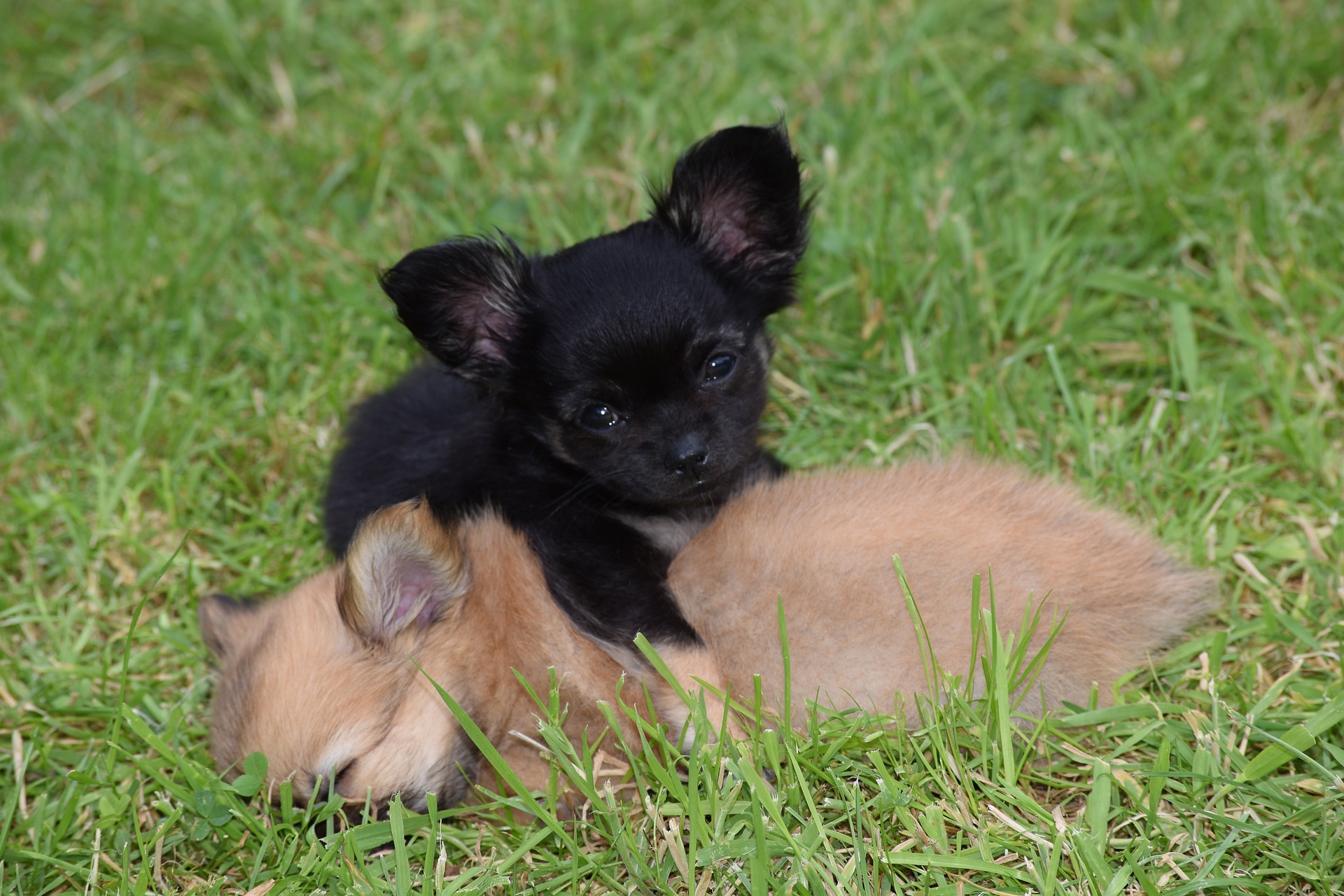
Owning a Chihuahua pup is a major responsibility, and taking care of them early in their lives can help them grow into healthy, happy adult dogs.
📌Nutrition
Your Chihuahua puppies need to get adequate nutrition to develop properly. Even when they are young, you want to ensure that their diet contains all the vitamins and minerals necessary for healthy bone and muscle growth. Invest in high-quality puppy food designed to meet their specific nutritional requirements. Also, remember that small breeds like Chihuahuas require more calories per day than large breeds, so make sure their diet is adjusted accordingly.
📌Preventive Healthcare
From the time they are born, your Chihuahua puppies must continue receiving preventative care until adulthood. This includes getting all of their vaccinations on time and regular check-ups with a veterinarian familiar with the breed’s unique needs. Preventive care also includes regular dental care, such as brushing their teeth once or twice a week and trimming their nails every two weeks.
📌Creating a Safe Environment
Chihuahuas are small dogs with notable personalities, so providing them with ample opportunities for physical activity is essential for their health and well-being. You’ll want to ensure their environment is safe by dog-proofing your home before bringing them in—this means checking for potential hazards like exposed wiring or loose objects that could be swallowed or chewed on if left unattended.
📌Exercise
Chihuahuas are known for being energetic little dogs with lots of personalities — but they don’t need much exercise. A few short daily walks should be enough to keep them healthy and happy. However, only take them out when it is safe outside (e.g., not too hot or cold). Also, keep an eye on your pup while outside as they can easily wander off due to their small size — so be sure to have them leashed at all times when outdoors!
📌Socialization
Pay attention to the importance of socializing your pup, which is a crucial aspect of early care. Taking time out each day (or several days a week) can help ensure your puppy gets used to different people and environments while still young. It would be easier for them to meet new people or visit unfamiliar places later in life. It will also help reduce anxiety and fear as they grow up.
Frequently Asked Questions
Q. How many puppies are ideal in a single birth?
A healthy litter size for Chihuahuas is typically between 2 and 4 puppies. Any more than that, and the puppies may not get enough nutrition or space, which can lead to health issues. Additionally, larger litters increase the risk of stillbirths or miscarriages in small dog breeds like Chihuahuas. Therefore, it is best to stick with smaller litters if you want to breed a Chihuahua.
Q. Are larger litters in Chihuahuas considered a desirable trait?
Although it is generally preferred to have 2 or 4 Chihuahua puppies in a litter, larger litter does happen in the breed. On the surface, this might seem desirable as more puppies mean more potential money for the breeder. While it’s true that some mothers can handle the stress of birthing a large litter without suffering any ill effects, it’s important to remember that having a lot of puppies poses risks for both the mother Chihuahua and her offspring. This can cause concern among vets as they may not be able to provide adequate healthcare so that each puppy gets what they need to thrive. When it comes down to it, larger litters might not be desirable for Chihuahuas, and those who love them should endeavor to ensure their health and safety regardless of how many puppies come into the world.
Q. Can Chihuahua litter size be predicted or controlled?
While predicting the exact size of chihuahua puppies in a litter can be difficult to ascertain, certain factors will influence the number of puppies born. The dam’s physical health and age significantly impact litter size — large females with good vitality may give birth to more puppies than smaller females or senior dogs. In addition, studies have shown that providing better nutrition before and during pregnancy results in a larger litter. If controlling litter size is desired, breeders should speak to their veterinarian regarding the best options for spay surgery — this can significantly reduce potential complications and increase the chance that all puppies survive the birthing process.
Q. Can over-breeding impact the size of a Chihuahua litter?
Yes. Overbreeding can lead to decreased litter sizes due to in-breeding and poor-quality nutrition. The result is that Chihuahuas usually only produce a handful, typically 3-5 puppies, instead of larger litters which are more common in some breeds. Breeding responsibly is essential to ensuring the health and happiness of all animals involved, especially in cases where the litter size is small.
Q. Is it probable that a chihuahua can only have one puppy in a litter?
It is technically possible for a Chihuahua to have only one puppy in a litter, although single-puppy litters are not very common. The average litter size of a Chihuahua is approximately two to three puppies, but some healthy female Chihuahuas can become pregnant and give birth to a single pup. In most cases, however, if only one puppy is born, it may indicate inadequate care during pregnancy or nutritional deficiencies. It might be wise to take the mother and the puppy to the vet just to be safe.
Q. How many times can I breed my Chihuahua in a year?
Breeding a Chihuahua more than once or twice a year is generally not recommended. Overbreeding can increase the risk of complications during pregnancy and birth and weaken the dam’s health over time. Additionally, breeding too frequently can lead to inbreeding, increasing the likelihood of genetic disorders.
Moreover, consider the dam’s age and overall health, as older dogs or dogs in poor health may not be able to handle frequent breeding. A veterinary evaluation before each breeding can help determine if the dam is healthy enough to take another pregnancy.
Final Words
No matter what size your Chihuahua’s litter is – big or small – caring for each puppy requires dedication and love. Observe ethical breeding procedures to protect the mother and her puppies’ health and safety. By understanding these variables and providing appropriate care, you can help to ensure a successful and healthy litter of Chihuahua puppies.
Here at ILoveChihuahua, we share our personal experiences as owners of this feisty breed. We talk about recommended methods, dog supplies picks, and advice on common Chihuahua problems. Our goal is to promote responsible dog ownership, so there would be fewer Chihuahuas in shelters.

